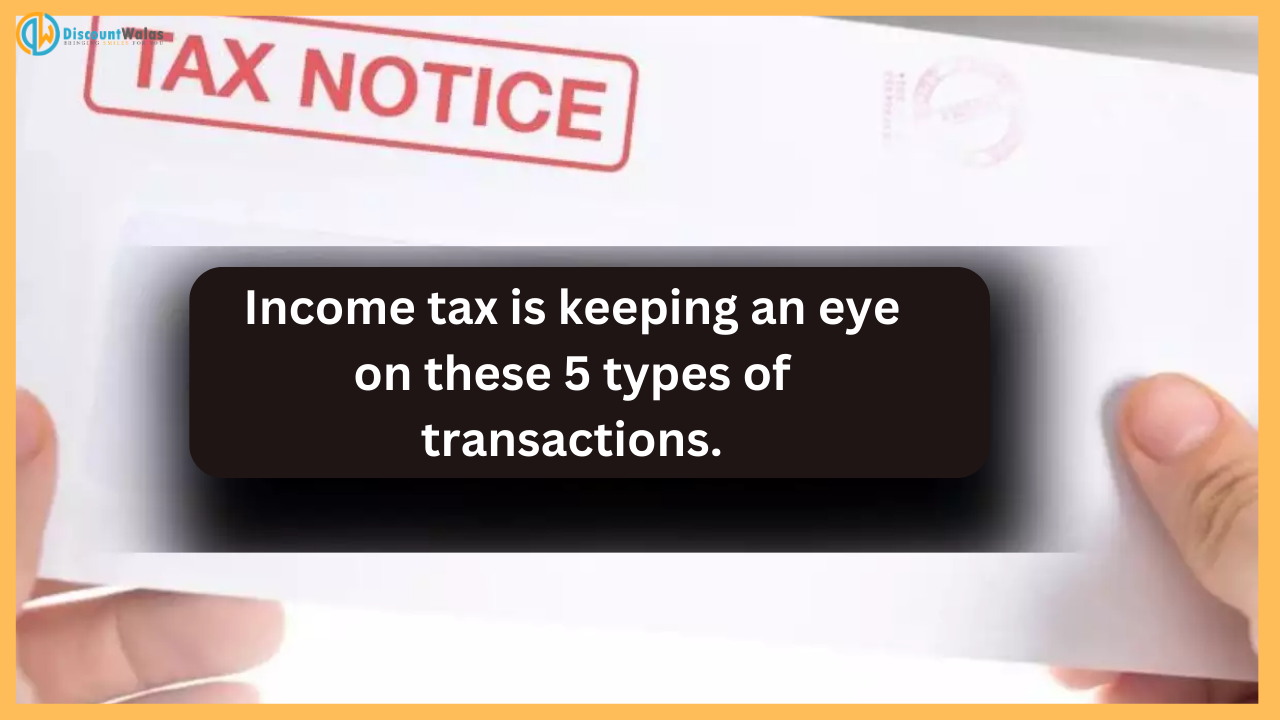
Income Tax Notice: Now there are many such transactions which are monitored by the Income Tax Department. If you do big cash transactions then they will have to inform the Income Tax Department. In such a situation, we are telling you about 5 such transactions, which can put you in trouble.
Now if you commit any fraud then only the Income Tax Department notice will come, there is nothing like that. These days the Income Tax Department has become very cautious regarding cash transactions. Over the past few years, the Income Tax Department and various investment platforms such as banks, mutual fund houses, broker platforms, etc.
have tightened the rules for cash transactions for the general public. Now these investment and lending institutions allow cash transactions only up to a certain limit . In case of even slight violation, the Income Tax Department can send a notice.
Not only common frauds, now there are many such transactions which are monitored by Income Tax. If you do large cash transactions with banks, mutual funds, brokerage houses and property registrars, they will have to inform the Income Tax Department. We are telling you about 5 such transactions, which can put you in trouble.
Bank Savings Account Deposit
The cash deposit limit in a bank account is ₹10 lakh. If a savings account holder deposits more than ₹10 lakh during a financial year, the Income Tax Department can send an income tax notice. Meanwhile, cash deposits and withdrawals into a bank account that cross the limit of ₹10 lakh in a financial year must be reported to the tax authorities. In current accounts, the cap is ₹50 lakh.
FD
Cash deposit in bank FD should not be more than Rs 10 lakh. The Central Board of Direct Taxes ( CBDT ) has announced that banks will have to disclose whether individual deposits in one or more fixed deposits exceed the prescribed limit.
Credit Card Bill Payment
As per CBDT rules, payments of Rs 1 lakh or more in cash against credit card bills must be in the sight of the Income Tax Department. Additionally, if ₹10 lakh or more is paid in a financial year to settle credit card bills, the payment must be disclosed to the tax department.
Sale or Purchase of Real Estate
The property registrar must disclose to the tax authorities any investment or sale of immovable property for an amount of ₹30 lakh or more. Therefore, in the purchase or sale of any real estate property, taxpayers are advised to report their cash transactions in Form 26AS, as the property registrar will definitely report about it.
Investment in Shares, Mutual Funds
Investors investing in mutual funds, stocks, bonds or debentures should ensure that their cash transactions in these investments do not exceed ₹10 lakh in a financial year. The Income Tax Department has prepared the Annual Information Return (AIR) Statement of Financial Transactions to detect high value cash transactions of taxpayers. The tax authorities will collect details of unusually high value transactions in a particular financial year on this basis.